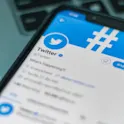Building a Facebook of the Middle Ages
Could ‘big data’ of the past allow us to build an historical social network? The Venice Time Machine Project is finding out — by Kevin Baumer Meet Battista Nani, the Venetian ambassador to France from 1643-1668. By using new technologies to digitize, transcribe and index over 1000 years of historical documents — enough data to fill 80km of shelf space — we can now reconstruct parts of his life in much more detail. Documents such as tax returns, letters and genealogical records are now digitized and searchable, allowing Ambassador Nani to be connected to his family members, friends and colleagues in a larger network. Nani’s life trajectory emerges out of this mass of Venetian documents, through a constantly growing network of relations with particular places (the houses he owned, the places he lived or visited) and people (family and professional relations). Expand this network to cover all residents mentioned in the Venetian archives, and you have a snapshot of a social network of the time — a ‘Facebook of the Past’. Frederic Kaplan, Field Chief Editor of Frontiers in Digital Humanities, presented an early version of the Venice Time Machine Project’s vision in a 2013 TED Talk, which has since […]












